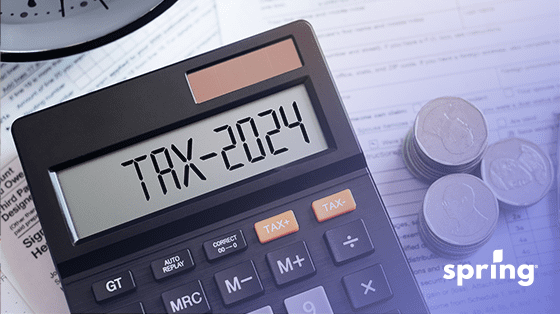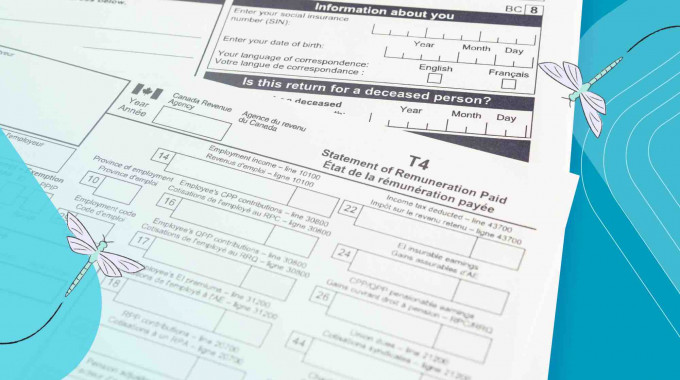While inflation can happen naturally, the Bank of Canada and the federal government are able to influence it as well. One of the ways they can do this is by raising interest rates, but this isn’t something that they take lightly.
It may seem like the higher prices on goods may have a negative influence but that isn’t always the case. Depending on who you are in Canada, inflation will affect you differently. There are pros and cons to inflation for average citizens, businesses and even the government. I bet you are wondering how, so let’s take a look.
How Does Inflation Affect the Average Canadian Citizen?
Unless inflation has suddenly skyrocketed, you may not notice it or how it impacts your everyday life. When you do notice it, it may seem like it’s all negative, but that isn’t always the case.
Pros
There are a few different ways that you are positively affected by inflation. The first is by causing growth in the economy. While it may seem like economic growth won’t affect you, it actually does. With moderate inflation, the increase in wages directly correlates with the increase in prices. This allows for the average person to continue on with their life as normal, buying things they want and need while borrowing money if necessary.
While we already mentioned that increased wages correlate with economic growth, it allows businesses to cover these wage increases, as well as be more competitive with their wages. You can even end up making more than your economic growth equivalent.
Cons
Even though there are some positives to inflations. There are also some negatives. In the case of high inflation, your wages can’t keep up with things like the gasoline prices, the cost of groceries, or even your bills. This can lead to a decreased purchasing power.
When inflation increases so can housing prices and interest rates, making it increasingly difficult to afford your goals. If you are already borrowing money for a mortgage, line of credit or personal loan and your interest rate is variable, this can affect you negatively as well.
As interest rates increase you will have to pay more interest. Whether this means less of your money is going to the principal or you are just paying more money per month depends on the type of variable loan you have. Either way, it ends up costing you more.

Effect of Inflation on Businesses
How inflation affects businesses really just depends on how high the inflation is. With moderate inflation, there is a positive impact on business. It is there to stimulate economic growth. If inflation is too high, or deflation occurs, that’s when negative impacts occur.
Pros
When it comes to moderate inflation, it can increase demand for businesses allowing them to have more freedom in their prices and make more money. This allows them to pay their staff appropriately as well as hire new employees. Inflation is normal and shows there is a healthy stable economy.
Cons
High inflation is dangerous to businesses. This is because, not only do business expenses rise drastically, but so do consumer prices. When consumer prices rise drastically, the average Canadian has a difficult time paying for things. This leads to decreased sales and increased expenses. It can be difficult for some businesses to survive economic conditions like that.
Deflation can also be a huge problem for businesses. Deflation is when prices go down instead of up. While this may seem like a good thing, deflation actually leads to a recession. People stop spending money thinking things will get cheaper. Debt prices can then get more expensive and consumers stop spending their extra money, it ends up going towards their debt. Consumers as well as businesses can also lose money on investments causing more financial problems.
Effects of Inflation on Government
Believe it or not, inflation can have just as many positives and negatives on governments as it does on the average person and businesses in Canada. There are quite a few positives, but there are also more negatives than you may think.
Pros
Just like everyone else, governments have debt. High inflation can impact the real value of the government’s debt, causing it to reduce. It can also help with government debt if the real interest rate if the yield is less than the rate of inflation.
With moderate inflation, the government stands to bring in more money. This is because businesses are bringing in more money and therefore, they are paying more in taxes. The government does also stand to bring in more money with higher inflation. When Canadian’s wages increase from inflation, they pay more in taxes which the government then receives.
Cons
While there is potential for the government to make more money with inflation, there is also potential to lose more. This happens when inflation is so high that people can’t afford to live. Their bills and basic necessities begging to cost them too much money and then the government then steps in to raise things like employment insurance rates, government grant, increased social assistance payments, as well as increases in old age security (OAS), guaranteed income supplement (GIS), CPP disability as well as others.
Another negative for the government is when interest rates increase. This means it will cost the government to borrow more money. Speaking of money though, not only can inflation cost the government more money, it can also decrease the value of its currency. In particular in Canada, the foreign currency that is kept track of in relation to the Canadian dollar is the US. Keep in mind that this not only affects the government, it can affect the average persona as well.
A large risk with higher inflation is the effect it has on international competitiveness. This then causes a reduction of the amount of exports coming into the country which can impact jobs and predict GDP (Gross Domestic Product) growth. When GDP growth starts to slow down, then this leads to having to borrow more money and less revenue from taxes. It is important that things remain competitive in order to reduce the risk.
Is Inflation a Problem in Canada?
While Canada isn’t currently at its peak for inflation rates, it’s still pretty high. Not only are there rising prices on groceries, but interest rates have gone up as well. In general, average prices have been rising due to the increase in gasoline prices and transportation costs. It is becoming much more difficult for Canadians to purchase homes, renew their mortgages or even pay the increasing rent prices.
Inflation occurs for a few different reasons. One of the most common ways for it to occur is through the demand-pull channel. This is when there is more demand for a specific product than what is available. This then triggers a price increase which affects more than just that product.
This commonly happens with aggregate demand. It also makes sense since money supply also directly affects inflation. If the demand for a product is high then there is more money for the product than product itself, prices then increase as well as production. That being said, this current spike in inflation has more to do with just the demand-pull channel and it is affecting more than just Canada.
With the COVID-19 pandemic, the war in Ukraine, as well as other economic changes, most of the world is currently affected by this spike in inflation. In Canada, the central bank (Bank of Canada) as well as the federal government, have been working to combat it.
On top of the other issues, there is also currently a labour shortage in Canada. This labour shortage is causing employers to pay new hires even more to entice them to take the job. These extra wages don’t make a huge difference in disposable income due to inflation, but businesses having to pay higher wages due to the labour shortage is directly contributing to inflation as well. This isn’t supposed to change anytime soon since there is a shortage of labor supply.

Inflation and If It’s Harmful or Not to Canadians
Normally, inflation isn’t something we as Canadians pay that much attention to. Traditionally, the rate of inflation is only about 2% per year and was determined by the Bank of Canada to be somewhere between 1% and 3%.
This is one part of something they call monetary policy However, with the economic changes we mentioned above, in 2022 inflation rose to 5.1% and as of January 2023, was sitting at 5.9%. This means that we are currently in a higher inflationary period than we have seen in around 25 years.
Inflation this high can cause major issues for Canadians. With the recent spike in interest rates and rising costs of housing prices, many Canadians are having issues paying their bills as well as affording rent increases.
Not to mention the increasing grocery prices are making it difficult for others to provide themselves and their families with basic necessities. Especially since wages haven’t increased accordingly. On top of that, many businesses are still just trying to recover from the Covid-19 pandemic.
How Canada is Affected by Inflation Overall
Overall, everyone in Canada is affected by inflation in some way. Whether it is the average Canadian or the federal government, everyone feels the negative and positive effects. That being said, you may be wondering, since we know so much about inflation and how it affects people and businesses, how is it measured?
How Inflation is Measured
Well, the best way for those who track inflation to track it is through the consumer price index. This index measures the percentage of change in the price of goods and services that are consumed by households. In most cases prices will rise over time (inflation), but in some cases they could fall (deflation) leading to a recession.








